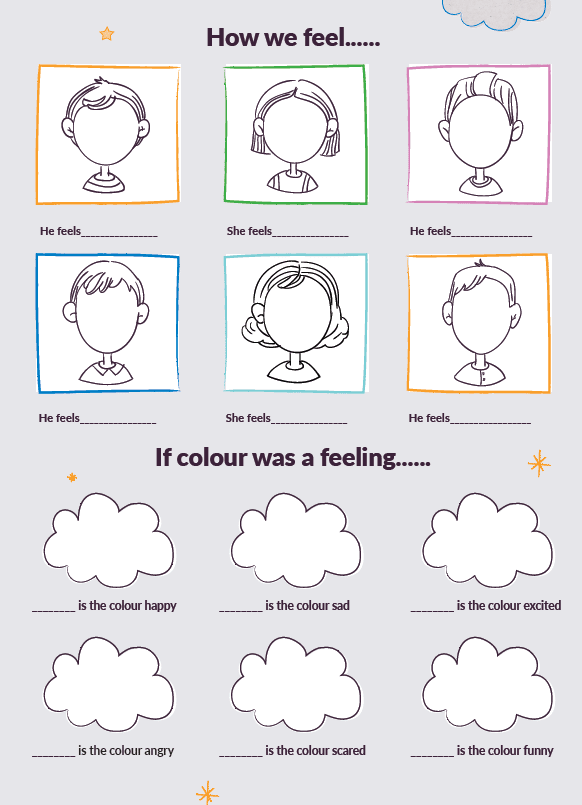During the first week of February, Children’s Mental Health Week works to raise awareness for the challenges our younger ones face with mental health, and works to help us tackle them.
This year’s theme is all about expressing yourself. Equipping our youngsters with the tools to identify and describe emotions is a vital part of their growth as emotional individuals. To help them in that goal, we’ve designed the ideal worksheet that allows children to express themselves.
Express your feelings and emotions – a resource
Download our express yourself worksheet to help your class or child describe who they are and they feel.
Why is it important children can express themselves?
Having the mental tools required to express your feelings, thoughts and emotions can have a hugely positive impact on a child’s overall mental health. It helps them build a picture of who they are and how they are feeling, both for their own contemplation and for you as a teacher or parent.
Recognising your emotions and knowing it’s ok to feel this way is the first step to a more robust emotional wellbeing. These are tools that children will benefit from long into their adult years.
How does this activity help children express themselves?
This worksheet is a great activity for school or home learning, tackling the topic of expression from a number of different angles.
Knowing who you are, what makes you happy, sad and unique is an important part of a child’s emotional development. Our worksheet contains a canvas on which children can grapple with questions. It then goes onto tackle specific emotions, linking colours and facial expressions to help children identify how they’re feeling.
Understanding the wide range of emotions they’ll feel, and knowing it’s ok to feel them, is a big step to developing emotional intelligence.
How else can we encourage children to express themselves?
There are countless ways a teacher or parent can help encourage a child to express themselves. Allow the child to experiment with each of these methods and see what brings out their feelings the best:
- Create a poem or story
- Act out a short play
- Create some music
- Complete a word search
There are lots of other ways to help create more positive mental health outcomes for children too. To give you some pointers, check out this piece with advice from 22 experts in science and education.
